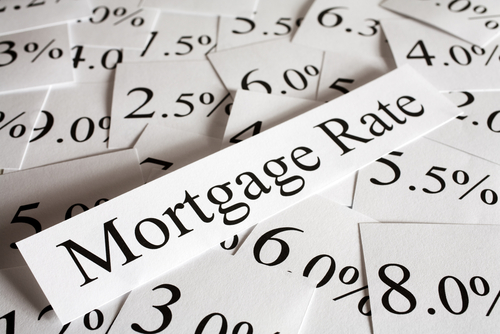Understanding mortgage interest is important when buying a house. But some borrowers don’t realize the impact interest rates have on financing. Getting an affordable mortgage isn’t only about the sale price of a home, it also has a lot to do with your interest rate.
Interest is the cost of borrowing money. A low rate can result in cheaper monthly payments and reduce how much you pay over the life of the loan. With regard to borrowing money, there are two costs you need to understand: interest and APR.
You may use these terms interchangeably, but there are slight differences. Interest is the cost of borrowing the principal, whereas the annual percentage rate (APR) is the annual cost of borrowing money and includes the interest rate and fees (broker fees, mortgage insurance and points, etc.)
Economic Factors That Influence Rates
Whether you’re shopping for your first mortgage or you’re a repeat buyer, you may already know that mortgage rates can fluctuate on a day by day basis.
Banks and other mortgage lenders originate home loans, but in most cases, these lenders do not keep loans in their portfolio. Instead, they sell all or a percentage of their loans to agencies such as Fannie Mae or Freddie Mac. These loans are then sold to investors.
Mortgage interest rates are determined by what investors are willing to pay on the secondary market. Lenders adjust their rates accordingly based on economic factors. Most banks keep their mortgage rates competitive to attract customers, although rates can vary slightly from lender to lender.
What Determines Your Individual Rate?
But although investors in the secondary market influence mortgage rates, different factors determine your individual rate. These include the size of your down payment, your mortgage term and your credit score. To put it plainly, your mortgage rate will be largely based on your risk level. If mortgage lenders view you as a low risk, you’ll receive a better rate.
Giving your lender a larger down payment—perhaps 10% or 20%—is one way to negotiate a better loan rate. The more you have at stake, the less likely you are to walk away from the mortgage. Likewise, you may qualify for a better mortgage rate if you have a high credit score. Borrowers with the highest scores are less likely to default and jeopardize their excellent credit rating.
Another factor that determines your rate is the mortgage term and the type of mortgage. Some lenders offer lower rates for 15-year and 20-year mortgages. You also have the option of a fixed-rate or an adjustable-rate. Fixed-rate mortgages feature a rate that doesn’t change, resulting in predictable payments. An adjustable-rate mortgage has a temporary fixed-rate period followed by annual rate adjustments.
With an ARM, the rate may be fixed for the first three, five or seven years, and then reset every year thereafter. These mortgages are attractive because they have lower rates during the initial years, allowing you to start off with a lower home loan payment. The main problem with an adjustable-rate mortgage is that your payment can go up as your interest rate increases.








